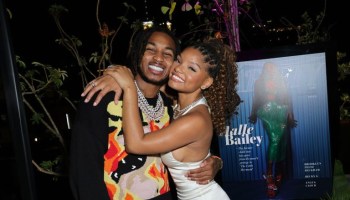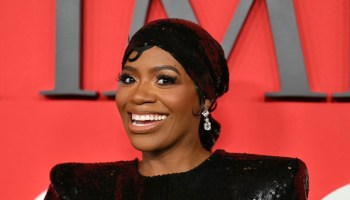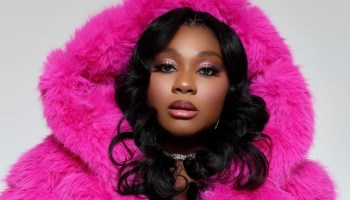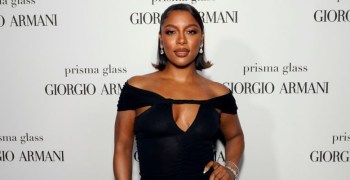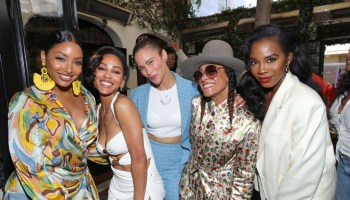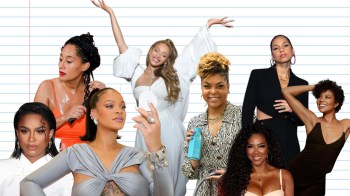Lisa Cortes knows a thing or two about switching careers. The film producer, who produced dynamic films like “Shadowboxer,” “The Woodsman” and “Precious,” originally started in the music business as a manager at Def Jam Records. She helped shape the careers of several artists, including Run DMC, Public Enemy and LL Cool J, during her tenure, but realized after clocking in more than 10 years in music, she wanted to explore an interest that sparked during her undergrad years at Yale University. “My first passion was music and then I moved into this other space,” she said. “I’ve always loved film. I had studied film theory and production when I was in college.” Cortes was then able to develop that interest into a full-fledged career as a film producer and founder of her own production company — Cortes Films — which totally has us in awe.
MUST READ: Big Money: 4 Reasons Business Owners Need To Give Themselves Raises
We had a chance to talk with the Hollywood Power Player about her career, her professional relationship with Lee Daniels and what she learned from working with one of the most iconic record labels in hip hip history.
HelloBeautiful: How did you decide to make the transition from music to film?
Lisa Cortes: My transition had to do with two things 1) hitting the glass ceiling in the music business and 2) saying I want a different kind of platform to continue to tell the kinds of stories about people who are misrepresented and I wanted a platform that was not limited to language. I worked with artists who had made incredible songs and albums, but if you didn’t know and speak English, you couldn’t access the message in the work. I was sitting in a movie theater in India after I left the music business and I went away to clear my head and figure out what was next. I saw film. I didn’t know what they were talking about, but I knew what was going on. That really was that ‘Aha moment’ for me of like, ‘I still have stories and characters and worlds that I want to share and that I want to give a platform to that has integrity and that has global reach.’ It was that call to go back home (back to film).
HB: Are there any lessons you learned at Def Jam that helped you transition into film?
LC: One of the biggest things I learned from Russell Simmons is that you have to look at your artist as a total package. What do they look like? What do they rhyme about? What kind of artist is looking for them? That total process was very instrumental in terms of me being a producer and looking at the integrity before delivering it. When I was working with the team, there were many places that we took hip hop where it had previously been unwelcome. There was a time when MTV was not playing the videos. It taught me a lot about understanding audiences and how to present to them and how to consistently deliver in the right package. I discovered that there were so many things on the timeline from inception to creation to delivery that when I got into film, there was a similar creative process.
HB: What does it mean to be a producer of a film? What are some of your responsibilities?
LC: The producer has the wonderful opportunity to work with all aspects of production. Both the business side and the creative side. I’m involved with every hire, keeping the project on budget, supporting the creative vision and taking the project from a script to production to sales and delivery to a distributor. A producer gets their hands dirty, you can’t produce from a far. You need to be in it and wrap your arms around all aspects because it is a team effort and you have to put together a great team and support your team.
HB: Speaking of team, you have Lee Daniels as a friend of yours and worked with him on several projects, including “Precious.” How did you get involved with his team?
LC: The first project that Lee and I worked on was “Monster’s Ball.“ Lee and I had known one another for many years. When I left the music business and started working in film, it wasn’t an immediate transition. I produced EPKs, I helped young student filmmakers, I went to festivals, I volunteered, I immersed myself in that world to learn as much as possible. Lee called and, through the years, we had talked about projects he wanted to produce. One day he called and said, ‘I’m going to New Orleans to make a movie, come and work with me,’ and he said, ‘you will work with the director also.’ The production company did not want him to have an assistant. But, Lee brought me onto the project and I worked with him and Mark Foster on that film. After the project, he said, ‘I love producing; I don’t want to manage actors anymore.’ With Lee and another former colleague, Dave Robinson, we began the production company — Lee Daniels Entertainment. The first film we did after that was “The Woodsman.”
HB: What is the professional dynamic like between you and Lee Daniels?
LC: Lee and I have a very similar creative entrepreneurial sensibility. We’re born on the same day. We have known one another since the mid-80s. There’s a language; there’s an aesthetic. There’s a vision of broadening the range of storytelling that we wanted. We share a broad range of inspiration, and so I think it’s a short-cut in the creative language.
HB: What are some of the things that a film must have that makes you want to work on it?
LC: The characters and the story have to take me someplace I haven’t seen before. When someone comes to me and says, ‘I have a film and it’s just like…,’ that’s a big turn off for me. I’m not interested, unless, I want something new. I want to see new people in situations. It’s very important for me to take my broad experience and bring it to stories that don’t fit into the typical formulas that get told. My greatest love is reading, so it’s always going to come down to the story. I want to see stories of Black people that inspire us and show the ways we move through the world and how we change.
HB: What changes in the film industry have you notice since you started out?
LC: One big thing is that you can make fabulous movies for half a million dollars or less than that. You don’t just have to have millions to be able to tell your story. I think that is a really welcoming change. The various modes of distribution have broadened. It was a very fixed schedule – you were theatrical or you were DVD. Now, you have cases where people are theatrical and then, two weeks later, they are available through digital delivery. I think the shifting of the gatekeeper in terms of distribution is a great change.
HB: What advice can you give to someone who wants to be a producer?
LC: Everybody’s process is different. Some people go to grad school. That is certainly one way to learn. Even as an undergrad, there are all sorts of film schools and programs, but that’s not always in everyone’s reach. It is about getting involved with organizations, such as Women In Film, The Independent Feature Project, and the San Francisco Film Society. Finding organizations interested in filmmakers and finding ways to become a part of that community, coming in as a PA, continuing your studies. You can’t say you just want to do it because you need to understand the framework of how it’s done. I think it should be a combination of study, of hands-on experience, of interning. All of those things should come into play in developing your perspective as a producer. A producer is a part of a community of great storytellers and technicians who help to realize a vision.
RELATED STORIES
Pass The Popcorn: 5 Movies To Watch This Weekend That Star Your Favorite Rapper
SHE WORKS: How BundleTreeBaby.com Is Empowering Mothers & Saving Babies In Uganda
SISTA CINEMA: 5 Memorable Movies About Single Parents









